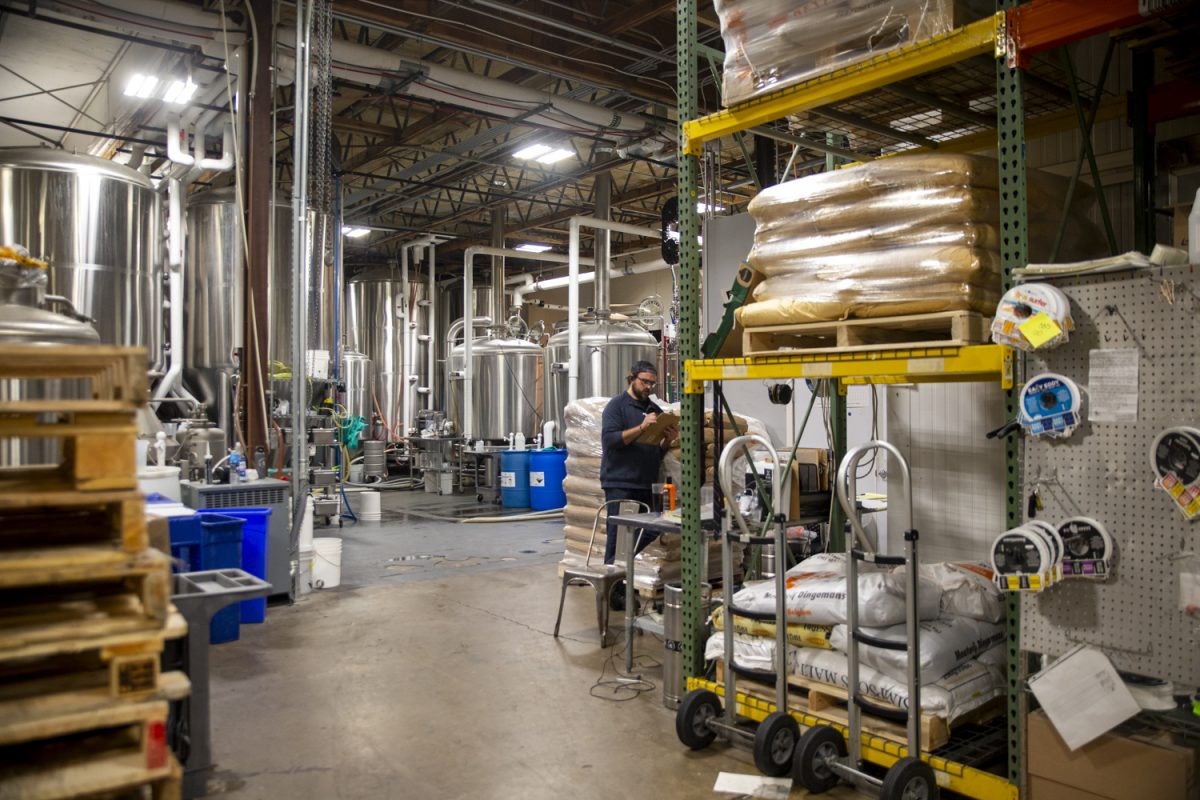During his 2024 presidential election campaign, President Donald Trump emphasized implementing tariffs on foreign items coming into the U.S. if he won. Following his victory, local breweries began taking steps to lessen the blow these tariffs could bring to their businesses.
Trump’s tariff plans went into effect at the beginning of March and have already been a cause for concern. He enacted the International Emergency Economic Powers Act, or IEEPA, to combat threats to U.S. national security.
The White House released a statement on March 3 detailing the reasons for these tariffs, such as an influx of illegal drugs and cartel activity. The statement also reads there has been a supposed rise of Mexican cartels operating drug synthesis labs in Canada.
The 25 percent tariffs on steel and aluminum target the beverage industry the most due to the previously lower cost of canning beverages. The price increase of canning material could harm the industry, specifically craft breweries. Producers of craft beer have increasingly chosen cans for packaging in recent years.
In early 2025, sales data from the National Brewers Association revealed aluminum cans accounted for 75 percent of packaged craft beer’s revenue and volume. Canada is also America’s largest steel supplier, followed by Mexico. The two countries account for almost 40 percent of the total steel and aluminum imported to the U.S., according to the association.
Other brewing materials facing tariffs are grains and barley. Independent brewers source most of their malted barley from Canada because corporate brewers have contracts for most American-grown barley.
These tariffs are meant to help American grain farmers but could end up hurting them because of the large amount of malted barley exported to Mexico.
Another concern for breweries is retaliatory tariffs. Brewers that export beer to Canada have had products pulled off the shelves and shipments canceled. Canada imports 37.5 percent of America’s craft beer, making it the largest export market in the brewing industry. Nationwide, craft brewery closures outnumbered openings last year, with the overall production down 2 percent.
Big Grove Brewery, a staple in eastern Iowa, opened its doors in 2013. It has expanded quickly over the past decade and is a known beer brand across the Midwest. Will Farmer, Big Grove’s brewery production analyst, started as a bartender and has worked up to his current position. Following Trump’s tariff announcement, Farmer and Big Grove began to construct a plan of action.
“Before he was even inaugurated, we started making moves. We got together with our vendors and tried to figure out the best way forward and what we could do to get ahead of things, so that we were ordering before they became an issue. We do expect there to be repercussions coming down the pipeline in the near future,” Farmer said.
Farmer is not as concerned with the availability of aluminum cans but rather the cost. Big Grove’s vendors have estimated an increase of about 5 to 7 percent. Considering the company fills around eight million cans a year, the cost adds up. Big Grove Brewery distributes to six states across the Midwest.
RELATED: How the price of eggs became a national political talking point
ReUnion Brewery is another popular business with two locations, one in Iowa City and the other in Coralville. Kris Mondanaro, ReUnion’s chief operating officer, expects the company will face losses due to its reliance on imported materials.
“The main way the upcoming tariffs would affect us is when we purchase cans and some of our grains,” she said. “During the pandemic, the business went through issues when cans were hard to acquire due to shipping issues. The price of cans more than doubled.”
Mondanaro has found a community with other small brewers across Iowa experiencing the same struggles.
“Our brewery and other little breweries in the state are going against larger companies like Coke, Pepsi, and large domestic breweries that have more purchasing power. That makes acquiring cans in America or abroad difficult,” she said.
Another unseen circumstance that Farmer and the brewery expect to impact them is the tariffs on grains. Big Grove gets its barley from a Minnesota farm, but locally grown grain prices will likely increase with rising import costs.
“Any time you see a tariff added on to imported goods, that’s going to affect the domestic market. People are going to move towards buying American grain, and it’s going to drive that price up … It’s supply and demand,” Farmer said.
Coralville is home to Backpocket Brewing Company, another small and local company facing these tariffs. Backpocket started as a restaurant and brewery in McGregor, Iowa, before rebranding and relocating in 2008. Since they source their grains domestically, they are not as concerned with grain tariffs as with aluminum. Aaron Vargas, owner of Backpocket Brewing, has been biding his time until these tariffs were official.
“Our aluminum supplier has been communicating with us over the past few months, but they were expecting anywhere from 11 to 16 percent rise in cost. Now that we have started to see the tariffs, we’re still gonna see an increase but not that drastically … about 3 to 6 percent. We’re expecting to see a price increase in April,” Vargas said.
Backpocket gets the majority of its brewing materials shipped domestically to its Coralville location, the only one that includes a taproom and live brewery. As of now, the tariffs on grain do not affect them and are no cause for worry.



